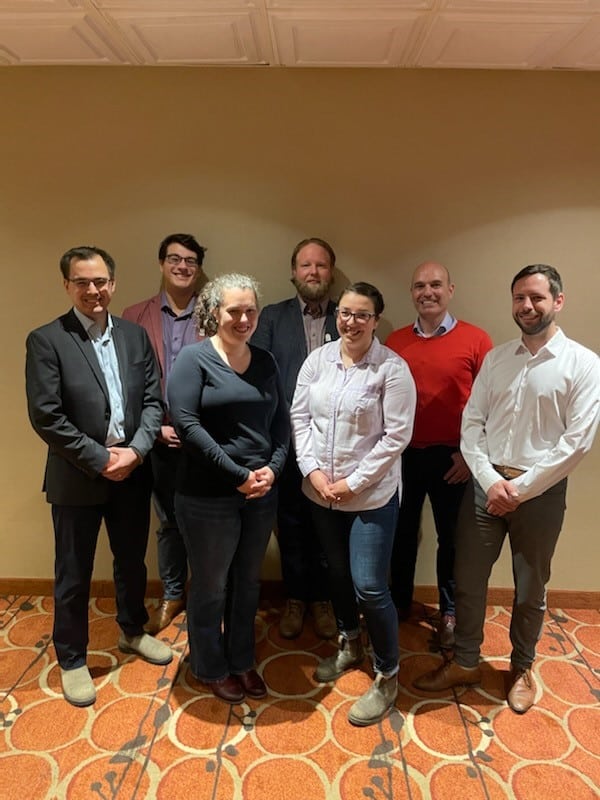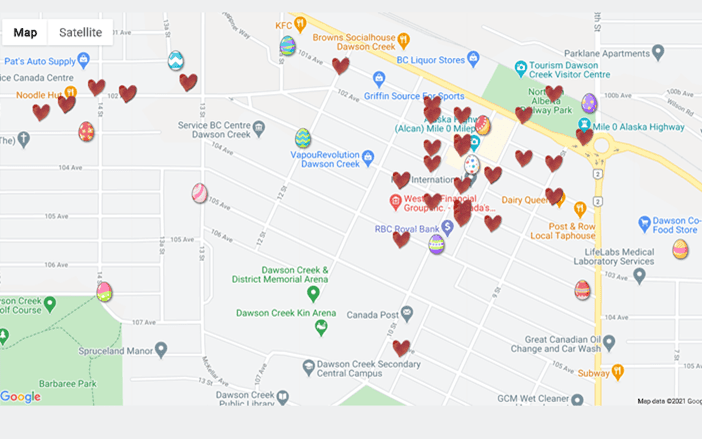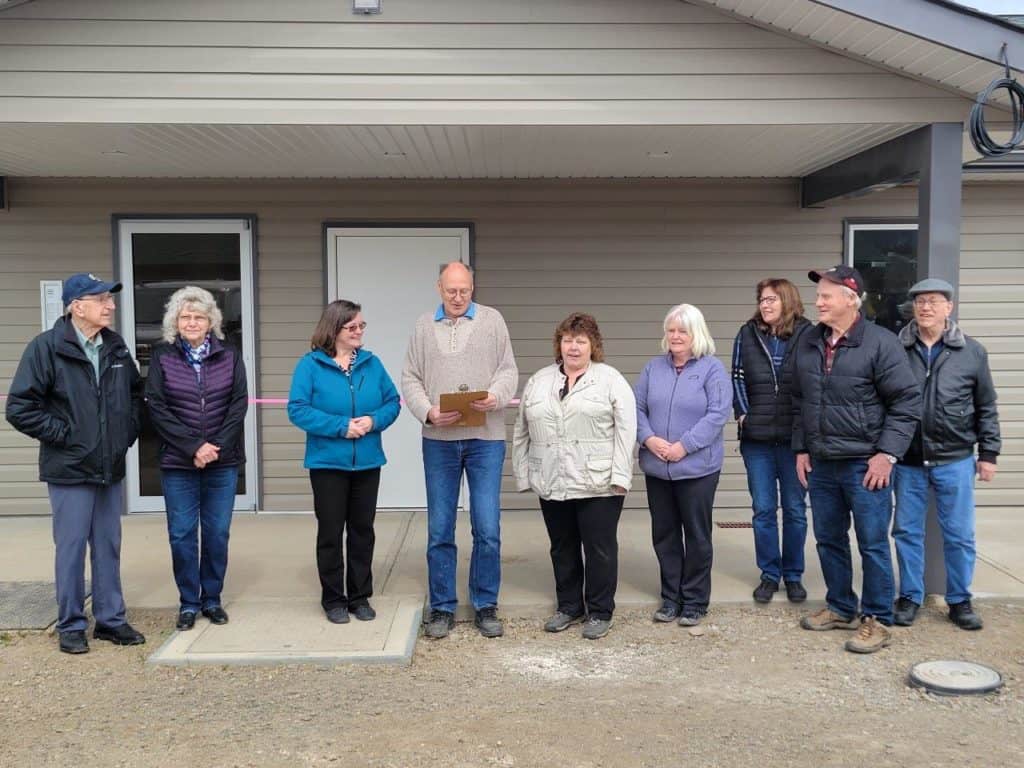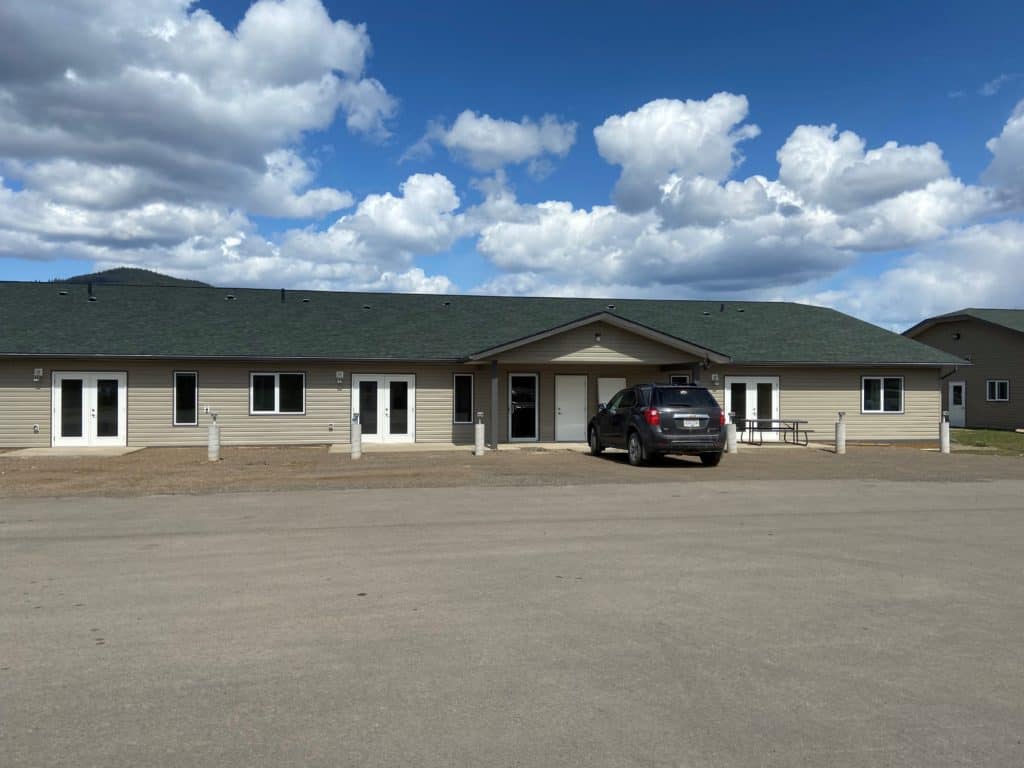
All photos: Deadwood Innovations
In 2020, Deadwood Innovations Ltd. contacted Northern Development about their work in developing a pilot processing plant on the former Tl’oh Forest Products site, located on traditional territory and owned by Nak’azdli Whut’en. This pilot project will use dead, dried or burned trees to create value-added engineered products. The project strongly aligns with the Trust’s Northern Industries Innovation Fund and in July, Deadwood Innovations was approved for a $50,000 rebate, the maximum amount available through the funding program.
“Deadwood Innovations has partnered with Nak’azdli Development Corporation to develop and commercialize a novel wood modification process that transforms low quality and/or underutilized fibre into engineered wood products,” said Owen Miller, president and project manager, Deadwood Innovations. “Through local innovation and Indigenous co-ownership, we are leading the journey into Forestry 2.0.”
Deadwood Innovations has developed a patent-pending process that crushes and presses pieces of dried conifers in a style that maintains fibre orientation and length as close to how it naturally occurs as mechanically possible. This intentional fibre arrangement retains the best qualities of natural wood and engineered wood products. The result is a high-value beetle kill engineered wood product that is free of rot, knots, checks and voids.

“Our technology provides a value-add, carbon-storing alternative for northern hardwoods and degraded softwoods,” explained Miller. “The combination of our mechanical and lignin chemistry processes modifies the natural cellulose structure and imparts desirable properties that nature didn’t. The fibre is upgraded without the use of conventional petrochemical derived adhesives and associated emissions.”
This process uses low energy and is relatively low cost. Dead and dry trees are harvested to be processed, which captures carbon instead of releasing it through burning or having the fibre transformed into hog fuel through shredding, or being used for pulping and pulverizing (pellets). Removing the dry and dead trees also reduces the likelihood of large-scale, uncontrolled wildfires by removing fuel.
“The financial support we received from Northern Development, Natural Resources Canada and the Province of BC through the Indigenous Forest Bioeconomy Program provided valuable support as we engineered, procured, constructed, and currently operate the pilot plant in the former Tl’oh Forest Products building,” said Miller.
By establishing the pilot plant on Nak’azdli Whut’en’s traditional territory, local forestry-related work will once again be available to community members. Between 1995 and 2014, Nak’azdli operated Tl’oh Forest Products, a fingerjoint manufacturing facility that was jointly owned with Sinclar Group.
The Mountain Pine Beetle epidemic had a devastatingly negative impact on Tl’oh’s production and profitability, which resulted in the mill being permanently curtailed in 2014. When Tl’oh closed, 60 employees, 85 per cent of which were Nak’azdli, were laid off. Since then, they have needed to seek forestry-related work elsewhere off-reserve. It is estimated that this pilot project will provide 25 permanent full-time jobs and 30 part-time or seasonal jobs.
“Through collaborative discussion and project review we are optimistic that this pilot has great potential,” wrote Chief Alec McKinnon, Nak’azdli Whut’en, in a letter of support. “The reactivation of this facility will further support our community with opportunity for Nak’azdli Whut’en employment both on site, as well as upstream harvesting activity, which may include utilization of entities within Nak’azdli Development Corporation.”
Northern Development’s financial support of Deadwood Innovations came from the Northern Industries Innovation Fund. The program supports innovative projects that contribute to economic diversification to mitigate the economic impact of the pine beetle epidemic.
